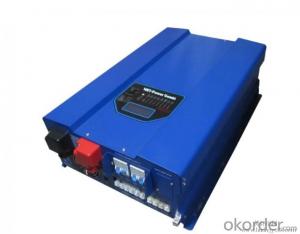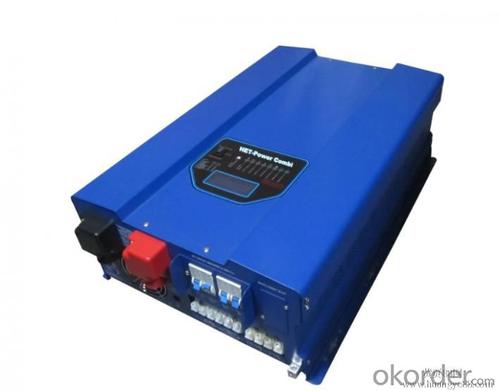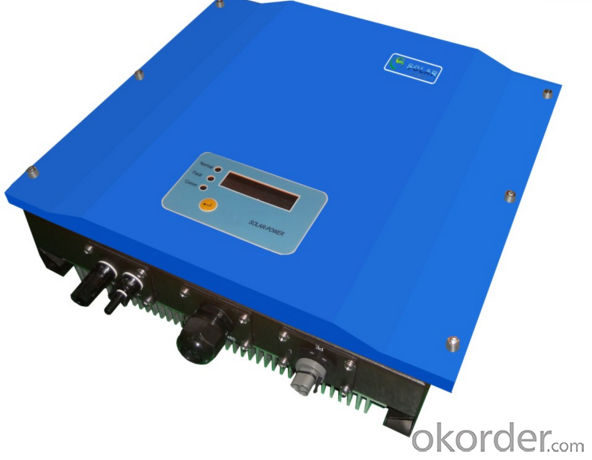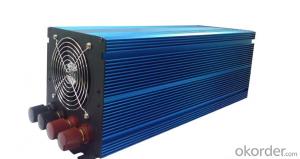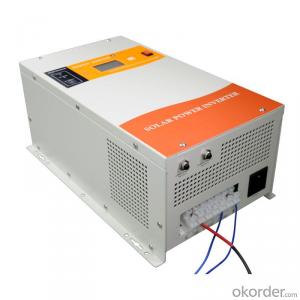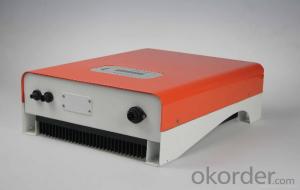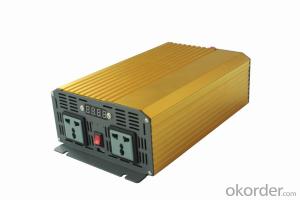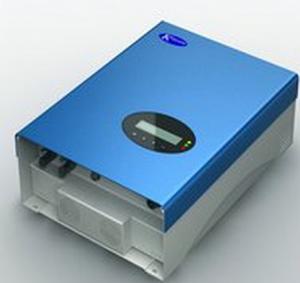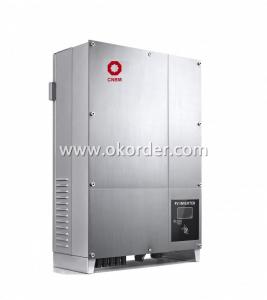Micro Inverter M600 Solar Inverter made in China
- Loading Port:
- Shanghai
- Payment Terms:
- TT OR LC
- Min Order Qty:
- 0 watt
- Supply Capability:
- 10000 watt/month
OKorder Service Pledge
OKorder Financial Service
You Might Also Like
Description of Micro Inverter Solar Inverter
Solar ac power system consists of solar panels, charge controllers, inverter and battery; Solar energy does not include inverter dc power system. Inverter is a kind of power conversion device, inverter by incentives can be divided into self-excited oscillation inverter and separately excited oscillation inverter.
Features of Micro Inverter Solar Inverter
Standard 10 years warranty, 5-15 years optional
High effiency (Max.96.7%)
AC/DC high frequency isolation technology
Maximum connection of 14 Micro-inverters
Adopted electric power carrier communication
Easy design,Plug-and-play chain installation
Remote monitor to each module
Reduce shading issues, improve the generating Reduce shading issues,improve the generating
integrated ENS function, complied with safety standard, can be connected to grid directly
Advantages of Micro Inverter Solar Inverter
Longer life cycle
Plug and play
Free monitoring through our webportal
Very lower internal temperature
Easy transportation and installation
Faster CPU speed
Adjustable active and reactive power
Real-time data readable at night
PID effect protect
Technical Data of Micro Inverter Solar Inverter
Type | Omniksol-M600 |
Input(DC) | |
Recommended PV Module Power | 2x(200-310)W |
Max,DC Voltage | 60V |
Operating Voltage Range | 16-60V |
MPPT Voltage Range at Nominal Power | 27-48V |
Max, Input Current | 10.0Ax2 |
Max, DC Short Cicuit Current | 14A |
Output(AC) | |
Nominal AC Power | 500W |
| Nominal AC Current | 2.17A(230V),2.08(240V),2.4A(208V) |
Nominal Grid Voltage | 230V/240V/208V |
Nominal Grid Frequency | 50Hz/60Hz |
Grid Voltage Range* | 230V/200-270V,240V/211-264V.208V/183-229V |
Grid Frequency Range* | 45.5-54.5Hz/57-62.5Hz |
Power Factor | >0.99 |
Total Harmonic Distortion(THD) | <3% |
Night time Power Consumption | <50mW |
Maximum Units Per Branch | 7 |
Efficiency | |
Max,Efficiency | 96.7% |
CEC Weighted Efficiency | 96.5% |
MPPT Efficiency | 99.5% |
Reference Standard | |
Safety Standard | EN 62109, AS/NZS 3100 |
EMC Standard | EN 6100-6-1, EN 6100-6-2, EN 6100-6-3 EN 6100-6-4, EN 6100-3-2, EN 6100-3-3 |
Grid Standard | VDE-AR-N4105. VDE-0126-1-1,G83/1,EN 50438,RD1699,CEI 0-21, AS4777,C10/C11 |
Physical Structure | |
Dimensions | 252x250x28mm |
Weight | 2.5kg |
Environmental Protection Rating | IP 67/NEMA 6 |
Cooling Concept | Natural convection |
Overvoltage Category | PVⅡ/Mains Ⅲ(According to IEC 62109-1) |
General Data | |
Operating Ambient Temperature Range | -40℃ to +65℃ |
Operating Internal Temperature Range | -40℃ to +85℃ |
Isolation Type | HF Transformerless |
Communication | Wire communication |
Standard Warranty | 15 Years (5-25 years optional) |
IMages of Micro Inverter Solar Inverter
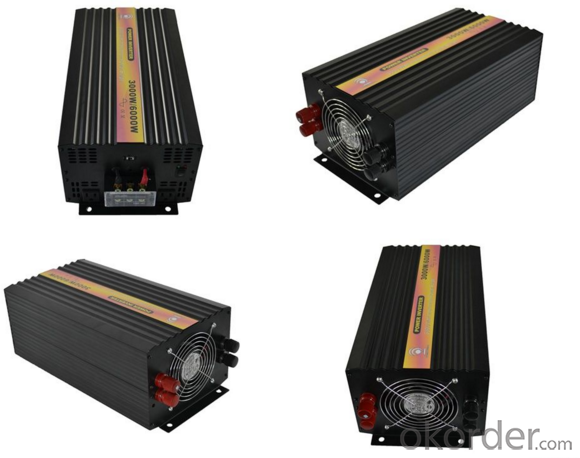
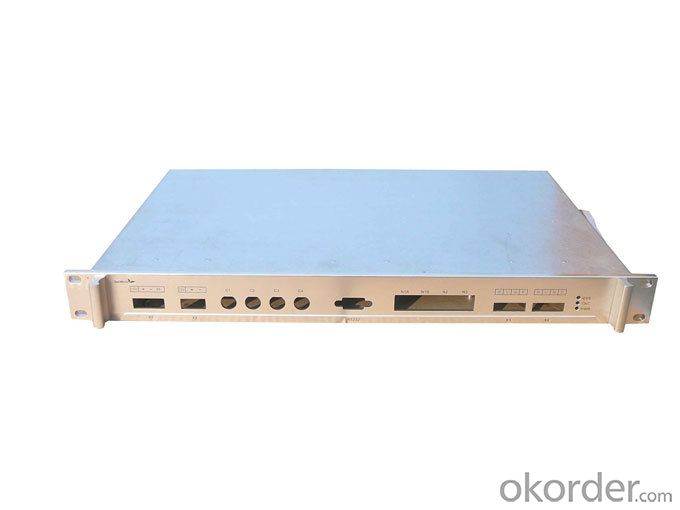
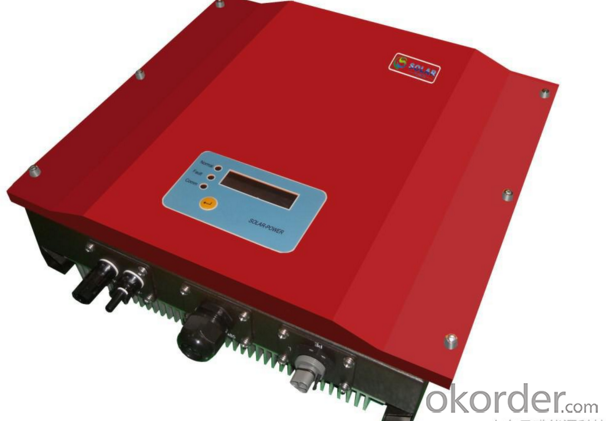
FAQ
Q: Do you have the CE, TUV, UL Certification?
A: We’ve already passed all the tests, and any certificate is available.
Q: Have you ever sold your products to companies in my country?
A: Of course, we have customers in all general PV markets, but I think we should expand our market share along with the market growth.
Q: When did your company set up? You are a new company, how can I believe your quality?
A: We entered into Solar PV industry in 2005, now we have several plants in manufacturing of a-Si and c-Si panels, and our capacity is 220MW per year. Till now we have already passed all the tests by authorized laboratories, e.g. TUV, CE, UL.
Q: Can you help us install the module if we cooperate with you?
A: We haven’t entered into installation sector, but we have the plan in near future.
Q: How do you pack your products?
A: We have rich experience on how to pack the panels to make sure the safety on shipment when it arrives at the destination.
Q: Can you do OEM for us?
A: Yes, we can.
Q: Can we visit your factory?
A: Surely, I will arrange the trip basing on your business schedule.
- Q: Can a solar inverter be used with a solar-powered backup generator?
- Yes, a solar inverter can be used with a solar-powered backup generator. A solar inverter is responsible for converting the DC (direct current) electricity generated by solar panels into AC (alternating current) electricity that can be used to power household appliances and other electrical devices. A solar-powered backup generator, on the other hand, uses solar energy to charge its batteries or store excess electricity. When the solar panels are generating electricity, the solar inverter will convert the DC electricity into AC electricity, which can be used directly in the household or sent back to the grid if the system is connected to it. If there is excess electricity being generated and the batteries of the solar-powered backup generator are fully charged, the solar inverter can divert the excess electricity to other loads or devices. During periods when solar energy is insufficient or not available, the solar-powered backup generator can kick in and provide the necessary electricity to power the house or recharge the batteries. In this case, the solar inverter will still be responsible for converting the DC electricity generated by the solar-powered backup generator into AC electricity. So, to summarize, a solar inverter can definitely be used with a solar-powered backup generator to ensure a continuous supply of electricity even when solar energy is limited.
- Q: What happens to excess solar energy generated by the inverter?
- Excess solar energy generated by the inverter can either be stored in batteries for later use or fed back into the grid, depending on the setup.
- Q: What is the role of voltage regulation in a solar inverter?
- The role of voltage regulation in a solar inverter is to ensure that the output voltage of the inverter remains stable and within a certain range, regardless of fluctuations in the input voltage from the solar panels. This is important as it allows the inverter to effectively convert the DC power generated by the solar panels into AC power that can be used by household appliances or fed back into the grid. Voltage regulation helps protect the connected devices from voltage spikes or drops, optimizes the performance of the inverter, and ensures the safe and efficient operation of the entire solar power system.
- Q: Can a solar inverter be used with solar-powered outdoor lighting?
- Yes, a solar inverter can be used with solar-powered outdoor lighting. A solar inverter is responsible for converting the DC (direct current) electricity produced by solar panels into AC (alternating current) electricity that can be used to power various devices, including outdoor lighting systems. This allows the solar-powered outdoor lighting to function efficiently and effectively.
- Q: How does a solar inverter handle voltage sag and swell?
- A solar inverter handles voltage sag and swell by utilizing its power conditioning capabilities. When it detects a voltage sag (a temporary decrease in voltage), the inverter adjusts its internal control algorithms to provide a stable and consistent output voltage to the connected loads. Similarly, in the case of voltage swell (a temporary increase in voltage), the inverter modifies its operation to prevent overvoltage conditions and ensure a safe and regulated output. Through continuous monitoring and intelligent control, a solar inverter effectively manages voltage fluctuations to maintain stable power delivery.
- Q: Can a solar inverter be used in commercial applications?
- Yes, a solar inverter can be used in commercial applications. Solar inverters are designed to convert the direct current (DC) generated by solar panels into alternating current (AC) that can be used to power electrical devices and appliances. This makes them suitable for a wide range of commercial applications such as offices, retail stores, factories, and other commercial buildings where solar energy can be harnessed to reduce electricity costs and promote sustainability.
- Q: What is the role of a solar inverter in a solar-powered remote monitoring system?
- The role of a solar inverter in a solar-powered remote monitoring system is to convert the direct current (DC) electricity generated by the solar panels into alternating current (AC) electricity that can be used to power the monitoring system. It also ensures that the electricity generated matches the requirements of the monitoring equipment, regulates the voltage, and assists in efficient power transmission and distribution.
- Q: What are the potential risks of overcharging a battery connected to a solar inverter?
- Overcharging a battery connected to a solar inverter can lead to several potential risks. Firstly, it can cause excessive heat buildup in the battery, which can lead to reduced battery life and even damage the internal components. Secondly, overcharging can cause electrolyte leakage or gas buildup within the battery, increasing the risk of explosion or fire hazard. Additionally, overcharging can result in the release of toxic gases, such as hydrogen, which can be harmful if not properly ventilated. Finally, overcharging can also have an adverse effect on the overall efficiency of the solar system, as excess energy is wasted during the charging process.
- Q: How does MPPT improve the efficiency of a solar inverter?
- MPPT (Maximum Power Point Tracking) improves the efficiency of a solar inverter by continuously adjusting the operating point of the solar panels to ensure they are producing maximum power. This is achieved by maximizing the voltage and current output of the panels, which allows the inverter to convert more of the available solar energy into usable electricity. By constantly tracking the maximum power point, MPPT ensures that the solar inverter operates at its highest efficiency, resulting in increased overall system efficiency and improved energy generation.
- Q: What is the role of a solar inverter in preventing overloading?
- The role of a solar inverter in preventing overloading is to regulate the flow of electricity from the solar panels to the electrical grid or battery system. It ensures that the amount of power being generated by the solar panels does not exceed the capacity of the grid or battery, thus preventing overloading and potential damage to the system.
Send your message to us
Micro Inverter M600 Solar Inverter made in China
- Loading Port:
- Shanghai
- Payment Terms:
- TT OR LC
- Min Order Qty:
- 0 watt
- Supply Capability:
- 10000 watt/month
OKorder Service Pledge
OKorder Financial Service
Similar products
Hot products
Hot Searches
Related keywords
